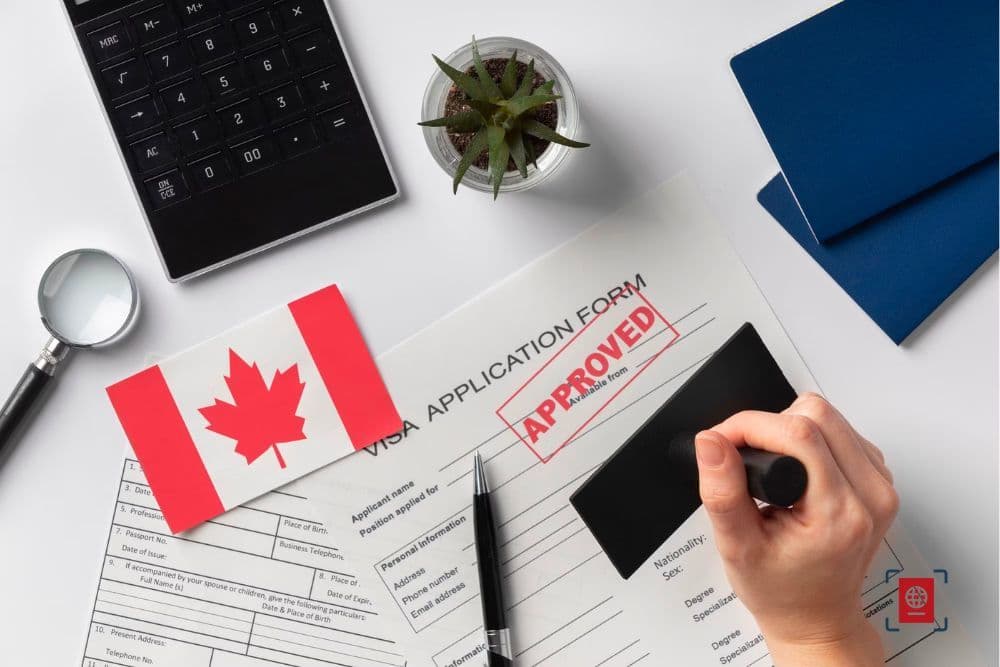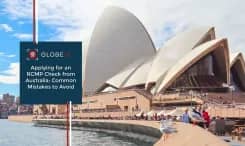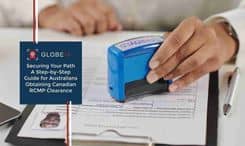State Apostille Services from USA
Apostille Services in California
Apostille Services in Texas
Apostille Services in Florida
Apostille Services in Washington
Services from Canada
Services from United Kingdom
Services from New Zealand

D7 Visa for Portugal residency: Here’s how you can apply from the U.S.
The small European country of Portugal has gained popularity among U.S. citizens and permanent residents in recent years. There are many reasons for this upward trend, including Portugal's attractively low cost of living, the country’s pleasant climate, and its welcoming.
One of the most popular groups of Americans deciding to move to Portugal are the retirees. Portugal's cost of living is significantly lower than the United States, and it has a very generous social setup for retirees. Americans can also benefit from Portugal's highly sought-after D7 visa route, which allows them to gain residency in Portugal.In this blog post, we will guide you through the process of applying for a D7 visa from the U.S. We will take a look at the documentation requirements and also provide you with in-depth information on the application process.
Understanding the D7 Visa for Portugal Residency
The D7 visa could be your ticket to Portugal if you're a U.S. citizen with an eye on this country as your next home. Like any other visa application, there are certain conditions set by Portuguese immigration that you need to meet in order to be eligible. Let's take a deeper look at the D7 visa for Portugal residency.
Financial Stability
The target audience of the D7 visa is individuals who have a regular passive income. The source of this income could be rental income, financial investments, pensions, or even royalties. The idea behind this financial proof requirement is for the applicants to show that they can sustain themselves financially while living in Portugal, without needing to seek employment. The exact amount of income required can vary, but a general rule of thumb is that it should be equivalent to the Portuguese minimum wage or higher. As a U.S citizen, you can expect to show proof of a guaranteed income of at least €8,460 per year.
Health Insurance
Health insurance is the second requirement. Although Portugal has excellent universal healthcare, you need to have international health insurance that covers you in Portugal, to be able to secure your D7 visa. Having private health insurance will also help you get faster access to healthcare, as opposed to waiting for appointments in the universal healthcare system.
Criminal Record Clearance
Next up is showing a clean criminal record, for which you will need to get an FBI criminal background check. In addition, you will also need to obtain a police clearance certificate from every country where you've lived for six months or more in the last five years.
Proof of Accommodation
Now, it is time to book your accommodation in Portugal. The proof of accommodation can be a property deed, a letter from a friend or family member stating that you'll be staying with them, or a simple rental contract.
Letter of Intent
The last step is submitting a motivation letter detailing why you want to move to Portugal. This is a very important part of the application approval process. The motivation letter gives you a chance to state your unique case and show the immigration authorities in Portugal that you're genuinely interested in becoming a resident.
At Globeia, we tell our clients that the D7 visa is about more than just paperwork. You should think about the entire process as demonstrating your commitment to becoming a part of Portuguese society. So, while fulfilling these requirements is necessary, it's equally important to approach the process with a genuine interest and respect for the nation's culture and norms.

D7 Application Process for U.S. Citizens
Now that we have discussed the eligibility criteria in detail, let's walk you through the application process step-by-step so that you can get your D7 visa approved without any hassle.
Gather Your Documents
In addition to proving you meet the eligibility criteria that we talked about in the previous section, you also need supporting documentation. Globeia has prepared a general list of documents for your convenience:
- A valid Passport. The validity of your passport must extend at least 3 months beyond your planned period of stay in Portugal
- Your Birth certificate
- An FBI Criminal record check and police checks from other countries that you have stayed in for extended periods
- Financial proof
- Health insurance documentation
- Proof of accommodation in Portugal
- A well-written Motivation letter
- Complete D7 visa application form
- Passport-sized photos
- The Application fee in full
Certified translations of your documents that are not in Portuguese or English might also be required. It is always a good idea to go through Portuguese Immigration’s website to get an idea of which documents might need to be translated.
Submit your D7 Visa Application
The D7 visa application can be submitted via:- The Portuguese Embassy in the U.S. that covers your state of residence
- A certified Portuguese legal representative.
When applying directly through the Embassy of Portugal in DC, you can either send in the application by mail or schedule an in-person appointment to apply in person. We’d recommend you call the Embassy first to get an idea of the type of documents you’d need to bring along with you.
Applying through a legal representative is easier in the sense that they will guide you in preparing and sending in the required paperwork so that they can submit it on your behalf.
Pay the Visa Fee
There is a non-refundable visa application fee of around $11o that must be paid to the Portuguese Consulate at the time of submitting the application. You can pay this fee through a money order, via a check, or in cash.
Give Your Visa Interview
The Consulate will schedule an in-person interview with you, once you have submitted your visa application. This interview helps them assess your motivations and goals for moving to Portugal. We would suggest you prepare in advance for questions related to how you meet the D7 visa eligibility criteria and what your long-term plans are for this next phase of your life in Portugal.
Get Your Visa Approval
The Consulate will issue a D7 visa sticker on your passport within 15 days of your interview if you pass their immigration approval process. It is always a good idea to verify the validity dates on your visa to check for any misprinting or errors.
We understand that all of these steps can indeed seem overwhelming at first, but you must look at the result and how securing a D7 visa will benefit you in the long run. You don’t have to worry about getting your visa application rejected if you meet all of the requirements for this visa type.









Global Services
State Services